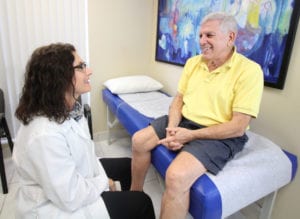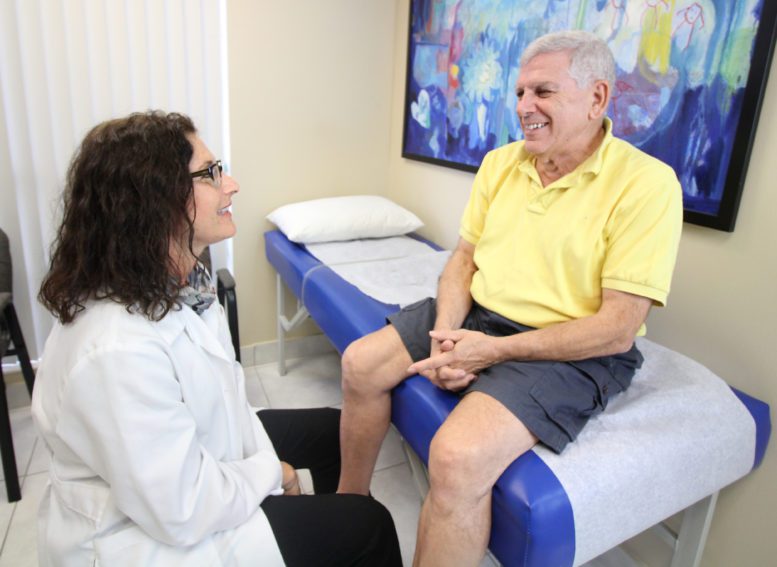
Osteoarthritis (OA) is a chronic progressive degenerative disease associated with cartilage loss and degeneration. It is the most common chronic joint ailment, distressing approximately 27 million Americans. OA is influenced by genes, environment (e.g. aging and obesity) and local trauma (e.g. consequences of joint injury or mal-alignment). These factors and more may contribute to the pathological process involved in the degeneration of the knee. Typical treatments include weight reduction, rest, exercise, non-steroidal anti-inflammatory drugs (NSAIDS), intracellular glucocorticoid injections, visco supplements, physical therapy, and bracing. These modes of treatments merely provide symptomatic relief from pain, failing to prevent cartilage damage and subsequent destruction of other joint tissues. Surgical methods of repair include the transplantation of osteochondral grafts, microfracture, and autologous chondrocyte implantation. According to controlled clinical trials, these methods have limited long term effects on the treatment of OA.
Adult mesenchymal stem cells (MSCs) have emerged as a candidate cell type with great potential in regenerative medicine. Adult stem cells are found in every part of the body and their primary role is to heal and maintain the tissue in which they reside. Stem cells are unspecialized cells capable of renewing themselves by cell division. In addition, they have the ability to differentiate into specialized cell types. Adult stem cells can be harvested from a patient’s own tissue, such as adipose (fat) tissue, muscle, teeth, skin or bone marrow. One of the most plentiful sources of stem cells in the body is the fat tissue. In fact, approximately 500 times more stem cells can be obtained from fat than bone marrow. Stem cells derived from a patient’s own fat are referred to as adipose-derived stem cells (ADSCs). Adipose derived stem cells have been explored with respect to their activity in diseases involving significant inflammatory or degenerative components. More recently, adult stem cells have been identified as having the potential to reverse the effects of diseases like OA .
 The mixed population of cells that can be obtained from fat is called a stromal vascular fraction (SVF). The SVF can easily be isolated from fat tissue in approximately 30-90 minutes in a clinic setting (under local anesthesia) using a mini-lipoaspirate technique. The SVF contains all cellular elements of fat, excluding adipocytes. Tens to hundreds of millions of ADSCs can be obtained in the context of the SVF acquired from 20-200 ml of adipose tissue during this out-patient procedure. This sets the stage for their practical use at the point-of-care, in which a preparation of ADSCs can be provided for infusion or injection after the mini-liposuction.
The mixed population of cells that can be obtained from fat is called a stromal vascular fraction (SVF). The SVF can easily be isolated from fat tissue in approximately 30-90 minutes in a clinic setting (under local anesthesia) using a mini-lipoaspirate technique. The SVF contains all cellular elements of fat, excluding adipocytes. Tens to hundreds of millions of ADSCs can be obtained in the context of the SVF acquired from 20-200 ml of adipose tissue during this out-patient procedure. This sets the stage for their practical use at the point-of-care, in which a preparation of ADSCs can be provided for infusion or injection after the mini-liposuction.
Studies that evaluate ADSCs as a potential for articular cartilage regeneration, have shown the cells to develop into chondrogenic lineage. There has also been reported improvements in function and knee joint pain, as well as increased cartilage thickness. Furthermore, a preliminary clinical study showed that SVF cells freshly isolated from adipose tissue, combined with PRP, administered intra-articularly, demonstrate healing potential in patients with degenerative OA. Patients have revealed significant improvements leading to a better quality of life.
Stem cells possess enormous regenerative potential. The potential applications are virtually limitless. Patients can receive cutting edge treatments that are safe, compliant, and effective. Our team has successfully treated over 7000 patients with very few safety concerns reported. One day, stem cell treatments will be the gold standard of care for the treatment of most degenerative diseases. We are extremely encouraged by the positive patient results we are seeing from our physician-based treatments. Our hope is that stem cell therapy will provide relief and an improved quality of life for many patients. The future of medicine is here!
For additional information on our South Miami clinic, visit www.americanstemcellcoe.com






